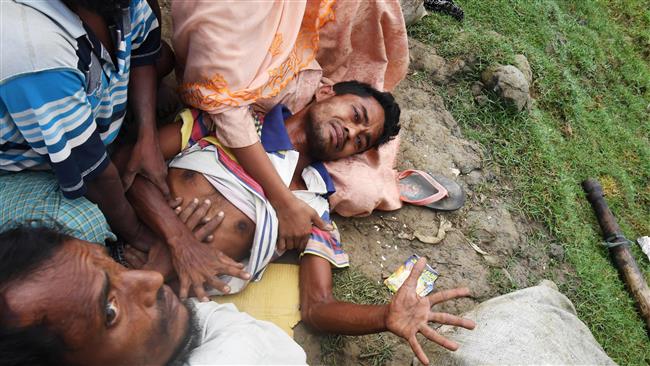
RNA - According to a 37-page report, titled All of My Body Was Pain, 29 out of 52 women and girls who managed to flee to neighboring Bangladesh and who were interviewed by the HRW said that they had been raped by security forces back in Rakhine. Except for one, all the cases had been gang rapes, the New York-based rights group added in its damning report on Thursday.
“Rape has been a prominent and devastating feature of the Burmese (Myanmarese) military’s campaign of ethnic cleansing against the Rohingya,” said Skye Wheeler, a researcher at the Women’s Rights Division of the rights group and author of the report. “The Burmese military’s barbaric acts of violence have left countless women and girls brutally harmed and traumatized.”
The HRW added that the government troops committed further acts of violence, cruelty, and humiliation against the persecuted Rohingya. It said many women had also been witnessing the murder of their young children, spouses, and parents.
A 15-year-old girl from Hathi Para Village in Rakhine’s border town of Maungdaw told the HRW that about 10 Myanmarese soldiers had gang-raped her.
“When my brother and sister came to get me, I was lying there on the ground, they thought I was dead,” she said, trembling with fear as she recalled the horrific scene.
The rights group documented six cases of mass rapes, five of which occurred after August 25, in which scores of soldiers raped many women in one locality simultaneously.
“The women were all over; everywhere there were women being raped,” said one of the rape survivors, who reported days of agony walking in pain while fleeing to Bangladesh.
Earlier this week, Pramila Patten, the United Nations special envoy on sexual violence in conflict, also said that sexual violence in Rakhine was “being commanded, orchestrated and perpetrated by the Armed Forces of Myanmar.”
More than 600,000 Rohingya Muslims have so far fled the predominantly-Buddhist Myanmar to neighboring Bangladesh since August 25, when the crackdown on the Rohingya intensified in Rakhine State.
During the past three months, government troops, apart from raping, have been committing killings, arbitrary arrests, and mass arson of houses in hundreds of predominantly-Rohingya villages in the restive state.
The United Nations (UN) has already described the Rohingya as the most persecuted community in the world, calling the situation in Rakhine similar to “a textbook example of ethnic cleansing.” Estimates as to how many Muslims have been killed vary from 1,000 to 3,000.
Myanmar’s de facto leader, Aung San Suu Kyi, who won the Nobel Peace Prize in 1991, has so far done almost nothing to end the violence in Rakhine despite increasing pressure from the international community. She claims that the widespread reports of killings and rape against the Rohingya are fake news.
At the root of the crisis is the refusal by Myanmar to grant citizenship to the Muslim minority community. The government says the Rohingyas should go to Bangladesh, where they are originally from, while Bangladesh says that they are Myanmarese and that Dhaka has accepted Rohingya refugees only on humanitarian grounds.
847/940